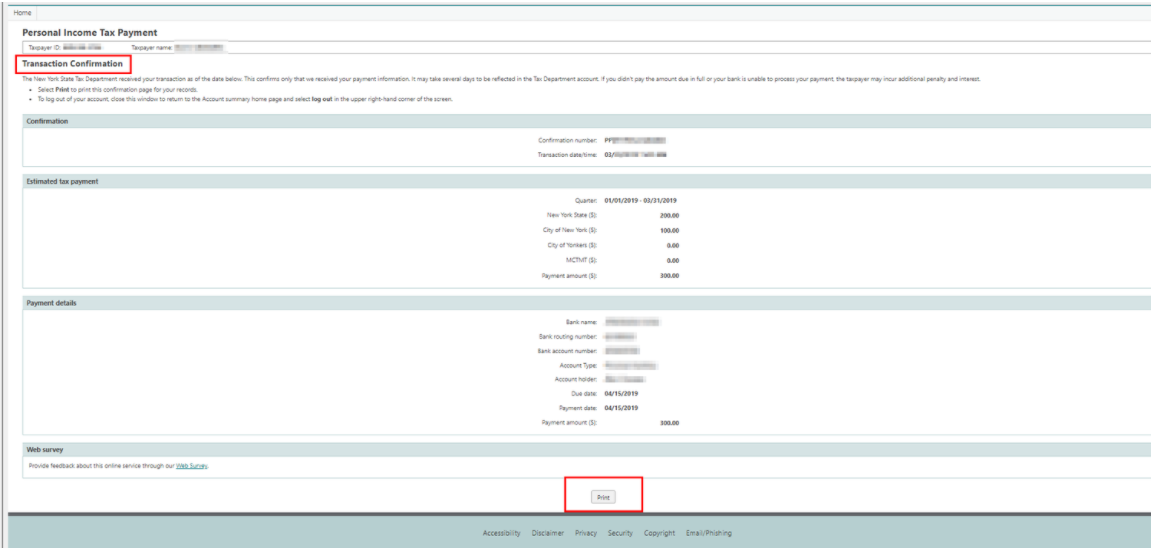Understanding Estimated Tax Payments in New York
In New York, estimated tax payments are a crucial part of the financial responsibility for many residents, especially for self-employed individuals and those with significant income not subject to withholding. This guide will explore the intricacies of New York’s estimated tax payments, providing readers with useful tips, platforms for making payments, and local insights that make navigating this process simpler.
Who Needs to Make Estimated Tax Payments?
Generally, you must make estimated tax payments if you expect to owe tax of $1,000 or more when you file your return. This includes:
- Self-employed individuals
- Freelancers or contract workers
- Investors earning dividends or capital gains
- Individuals receiving rental income
How Estimated Tax Payments Work in New York
In New York, estimated taxes are paid on income that isn’t subject to withholding. Payments are typically made quarterly, and the deadlines are as follows:
- 1st Quarter: April 15
- 2nd Quarter: June 15
- 3rd Quarter: September 15
- 4th Quarter: January 15 of the following year
Calculating Estimated Tax Payments
Calculating your estimated tax payments involves determining your expected income and applicable tax rates. The key steps are outlined below:
Step 1: Estimate Your Income
Gather information about your expected income for the year, including wages, bonuses, freelance work, investments, etc.
Step 2: Determine Deductions
Identify any deductions you may be eligible for, such as state and local taxes, mortgage interest, or charitable donations.
Step 3: Use the NYS Tax Tables
Use the New York State tax tables to find the applicable tax rate for your income bracket. You can find the tables here.

Payment Methods for New York Estimated Taxes
There are various ways to make estimated tax payments in New York. Below, we will compare different methods, highlighting their advantages and disadvantages.
1. Online Payments through NYS Department of Taxation
The New York State Department of Taxation and Finance offers an online payment portal for estimated taxes.
Pros:
- Instant confirmation of payment
- Convenient and quick
- Available 24/7
Cons:
- Requires internet access
- Potential processing fees for bank transactions

2. Mailing a Check or Money Order
You can mail a check or money order to the New York State Department of Taxation and Finance.
Pros:
- No processing fees
- Comfortable for individuals who prefer traditional methods
Cons:
- Delayed processing time
- Risk of the check getting lost in the mail
3. Electronic Funds Transfer (EFT)
Businesses and some individuals with higher tax liabilities may opt for electronic funds transfers.
Pros:
- Secure and efficient
- Suitable for large payments
Cons:
- May require additional setup
- Not as commonly used for individuals

4. Payment Plans
If you cannot pay your taxes in full, consider a payment plan with the New York State Department of Taxation and Finance.
Pros:
- Allows for more manageable payments
- Helps avoid penalties
Cons:
- Interest may accrue on unpaid balances
- Requires additional paperwork
Comparison of Payment Methods
| Payment Method | Pros | Cons |
|---|---|---|
| Online Payments | Instant confirmation Convenient |
Requires internet access Processing fees |
| Mailing Check | No processing fees Traditional |
Delayed processing Risk of loss |
| EFT | Secure Efficient for large payments |
Setup required Less common for individuals |
| Payment Plans | Manageable payments Avoid penalties |
Interest accrual Additional paperwork |

Common Mistakes to Avoid when Making Estimated Payments
In the hustle and bustle of New York life, it’s easy to make mistakes when it comes to estimated taxes. Here are a few common pitfalls to avoid:
- Not paying on time, which can lead to penalties.
- Underestimating your income to avoid making payments.
- Forgetting to include all sources of income.
- Neglecting to adjust payments according to changes in income or deductions.
Tips for Managing Your Estimated Tax Payments
Here are some practical tips to help you manage your estimated tax payments effectively:
- Keep detailed records of all income sources and expenses.
- Consider working with a tax professional to ensure accuracy.
- Set reminders for payment deadlines to avoid late fees.
- Regularly review your estimated payments to adjust for any changes in your situation.
- Use budgeting tools or apps to track your finances.

Resources for New York Estimated Tax Payments
For additional information and tools, consider checking the following resources:
FAQs about New York Estimated Tax Payments
What happens if I miss an estimated tax payment deadline?
If you miss a payment deadline, you may face penalties and interest on the amount due. It’s important to make the payment as soon as possible to minimize additional charges.

Can I change my estimated tax payments during the year?
Yes, you can adjust your estimated tax payments if your income or tax situation changes. For instance, if you receive a raise or additional income, you should recalculate your payments accordingly.
Are estimated tax payments refundable?
Estimated tax payments are not refundable. However, any overpayment can be applied to your next year’s taxes or refunded when you file your annual return.

Do I need to make estimated payments if my employer withholds taxes?
If your employer is withholding enough taxes throughout the year to cover your expected tax liability, you may not need to make estimated payments. However, if you have additional income, such as freelance work, that isn’t subject to withholding, you may still need to make estimated payments.